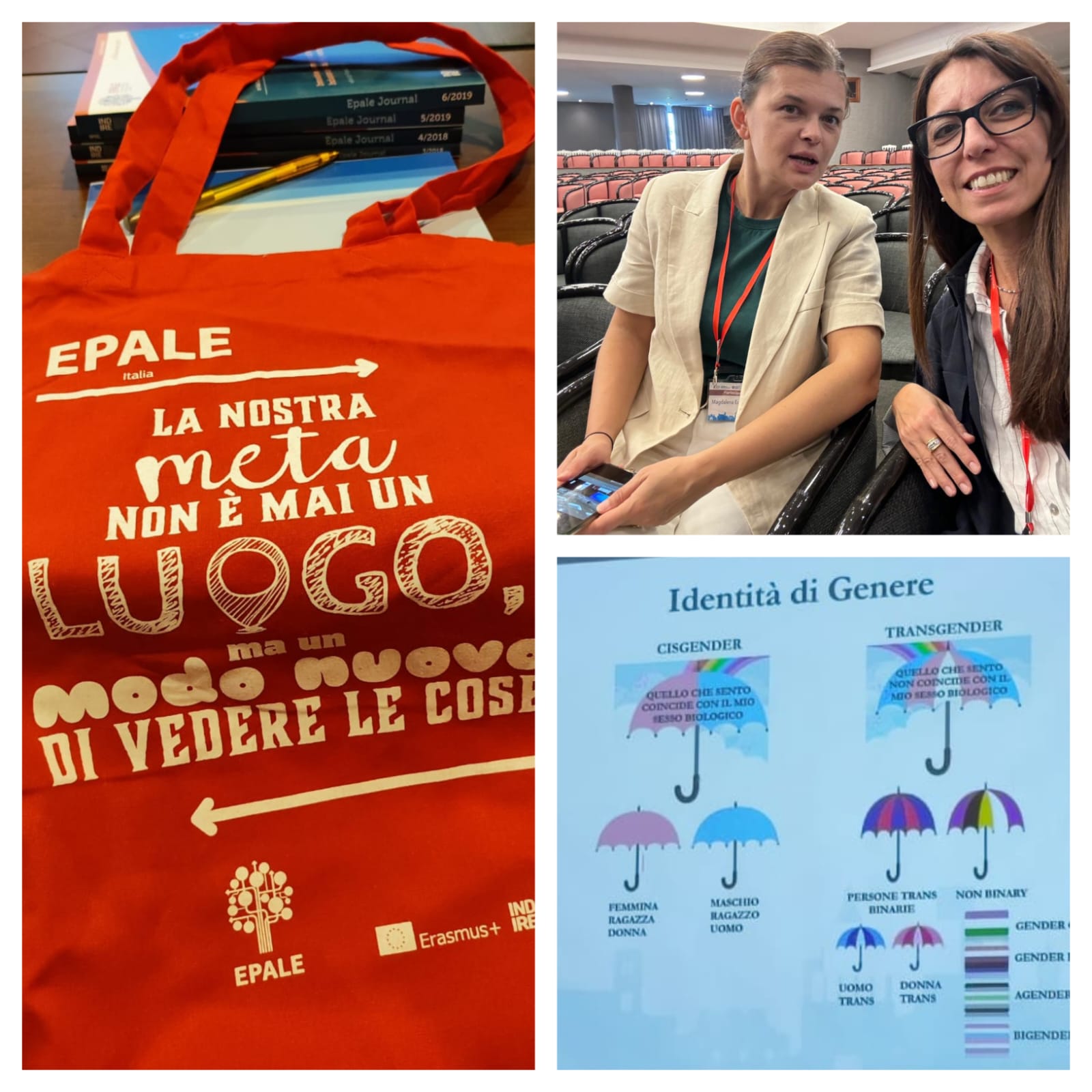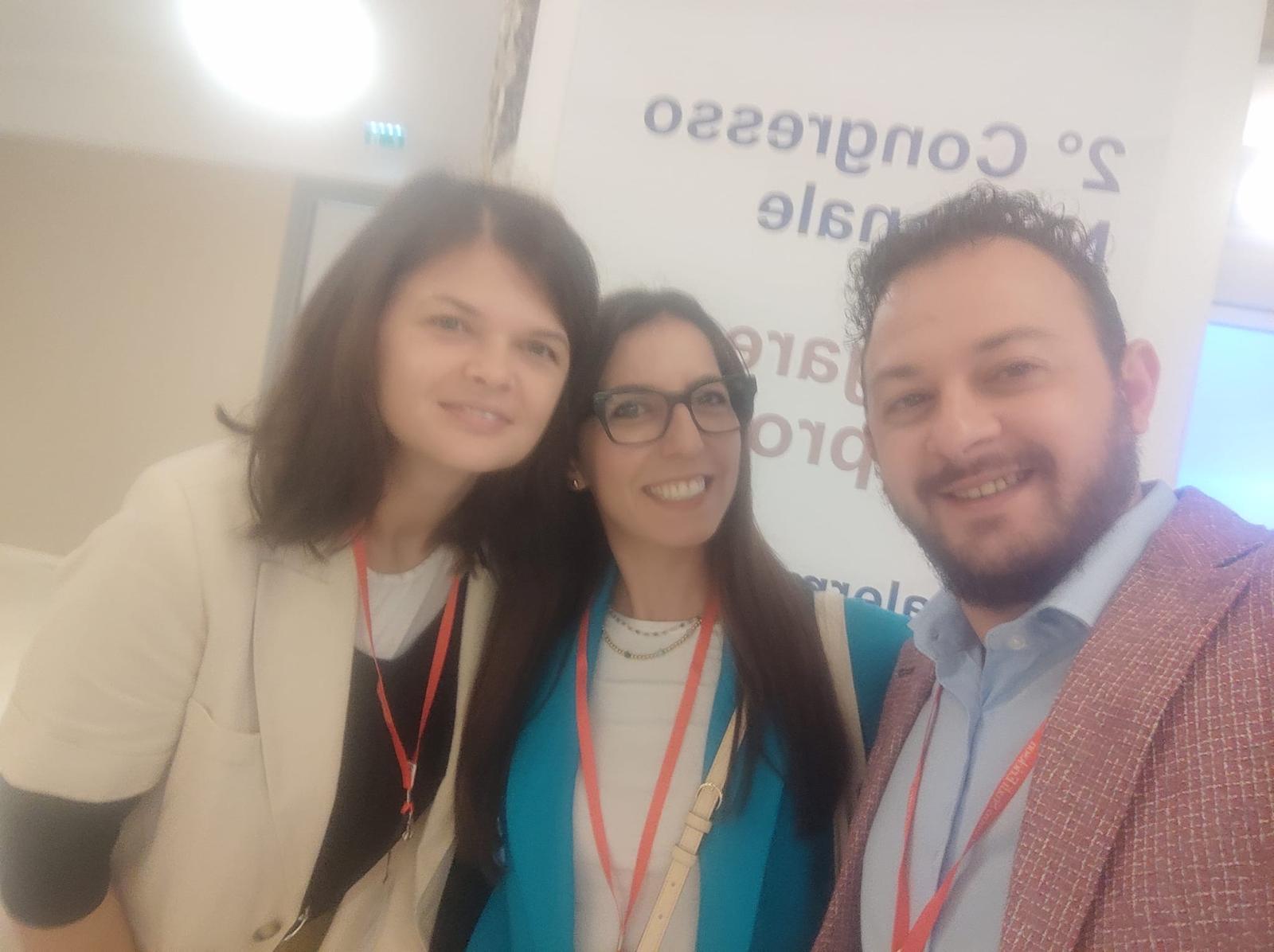Association
Close in the Distance is a non-profit organization founded in 2022, originally emerging as a civic and informal group of people who today live across Italy and Europe, primarily between Milan and Palermo.
Our team consists of tutors, psychotherapists, trainers, family mediators, and social workers who, alongside their professional careers, have always been engaged in socio-cultural promotion and activism. During the COVID years, we became increasingly involved in digital social work, education, and lifelong learning in virtual spaces. We all come from the non-profit sector and the field of ongoing education and training, bringing a wealth of diverse experiences in supporting diversity and inclusion. We work with individuals facing vulnerability or hardship, those at risk of social exclusion, or simply those without the means or direct access to educational opportunities, career guidance, individual support, psychological assistance, or therapy services.

Our Story
Close in the Distance was founded precisely for this reason: to preserve the work we did together during and beyond the COVID period, to continue what we shared, voluntarily and online, through platforms and channels like Discord, Reddit, and various virtual communities linked to the gaming world and culture. During that time, some of us began providing psychological support and parent training online, engaging with individuals and families in isolation, people who, even before the pandemic, lived in highly remote areas and who, without virtual tools, would have been impossible to reach. Others, including trainers and facilitators, started conducting their activities online, using digital platforms and channels to create initiatives and training programs with people from all over Europe, sometimes connecting through a multiplayer online game.
And then there were tutors and social workers who, wanting to make their time at home more meaningful, supported and guided many young adolescents, often with special needs and struggling with loneliness. They offered a helping hand, even with small, practical things related to school or social life.
After COVID and the so-called post-pandemic period, once some time had passed, Close in the Distance was founded, essentially capitalizing on the experiences, skills, and methodologies we had developed by talking to and engaging with people through a computer, a smartphone, a voice channel, a thread, or social media. We realized that not only is it possible, but it is also impactful and valuable to provide training in virtual conversation groups. Social work and psychological support do not have to be limited to in-person interactions; they can transcend borders and distances thanks to a screen, often demonized but incredibly useful, allowing us to reach people we would never have otherwise met or supported.
Our name
Close in the Distance is the flag under which we all spontaneously gathered right from the start, and it couldn’t have been any other way. Our name comes from the title of a song, a soundtrack from a well-known online multiplayer video game which, like all MMORPGs, brings together countless people of all ages, from teenagers to adults, entire families, and even elderly players. A significant part of our digital work during COVID actually began there, in virtual spaces, through avatars and in-game characters. From there, we moved on to other platforms and tools, but we never forgot how virtual communities, even those centered around gaming, had unexpectedly become so much more. It was in those spaces that we first started engaging in LGBTIQA+ activism online, supporting people who, through a game avatar, made their first-ever coming out with us, seeking not only comfort but also professional resources and guidance.
We carried out our work as online trainers, both for adults looking for new opportunities for growth and for Italian public institutions and their staff, sometimes even learning from scratch ourselves about the potential of new virtual interaction platforms. We began using the association’s virtual spaces to provide psychological support, especially for people living in remote areas, both neurotypical and neurodivergent, with affordable rates and maximum accessibility, made possible precisely by online tools.
Finally, we listened to and guided overstimulated, burned-out parents, caught between anxiety over their jobs, disrupted by the pandemic, and concern for their families, in a time when leaving the house was literally impossible, or nearly so.
Close in the Distance also means "close despite the distance," or, if you will, shortening and reducing the distance. That is why it felt natural to choose these words as the name of our association, as a true symbol that immediately evokes the idea of both a physical and virtual space where people can come together, get closer to one another, and fully embrace the positive aspects of our digital and virtual culture. A culture so often talked about negatively, without ever considering that very few things are inherently good or bad, and that, ultimately, everything depends on how they are used.
What do we do today?
Today, we continue our work as psychotherapists, tutors, trainers, family and parenting mediators, and social workers, with the commitment and goal of promoting, as much as possible, a healthy, conscious, and inclusive use of everyday digital culture in all its forms, without forgetting where we come from and, most importantly, with whom we started:
-We develop activities, programs, and training projects strongly focused on social inclusion and its practical implications in the workplace. We often integrate feminist and queer perspectives, along with broader SOGIESC topics, with the aim of introducing these concepts into professional environments that are often marginalized or underrepresented, such as "simple" office jobs, cultural sectors, routine manual labor, and other overlooked workspaces.
-We provide licensed psychotherapists, social workers, and other professionals supporting people with (dis)abilities with free access to the association’s physical and virtual spaces, ensuring greater accessibility to psychological services for both neurotypical and neurodivergent individuals. Additionally, we offer these professionals, therapists, and mediators tools and resources to organize recreational initiatives aimed at individuals with cognitive (dis)abilities, both in Palermo and Milan.
-We raise awareness about everyday digital life, promoting the integration and use of virtual tools such as video games and digital roleplay in contexts ranging from therapeutic support to family guidance. We also leverage these tools to impart core civic, democratic, and diversity-inclusive values and skills in an engaging and accessible way.
-We combat the negative effects of digital consumption through both in-person and online resources and workshops, addressing issues such as gaming addiction and social media overuse. We also provide training for other professionals and prevention centers, both public and private. Because these tools are so integral to our habits and personal culture, we understand how uncontrolled, unconscious, and unmoderated use can, over time, cause harm to people of all ages, much like other, more traditionally recognized addictions or harmful behaviors.
-We provide support and identity affirmation, particularly for young LGBTIQA+ individuals, reaching and engaging with them primarily online. Our work goes beyond simply listening: we also offer resources, self-empowerment programs, role models, and practical information, particularly in cases of discrimination, bullying, or abuse, whether from peers or family members.
-We foster dialogue and connections with other European cultures that are objectively more advanced in terms of inclusion, LGBTIQA+ visibility, gender policies, and support for individuals with (dis)abilities. Through virtual exchanges and mobility programs, we work to further internationalize our association. We also provide adults who turn to us, especially those with fewer economic opportunities, with real opportunities for stays abroad in Europe, hosted by organizations that, like us, work to improve well-being, develop both fundamental and sector-specific skills, and promote inclusion and personal growth.
And above all... We promote the culture of nonprofit, of actions and initiatives with no profit motive. Everything we do is, and will always be, accessible, free, and open to all who are interested in our topics and our work, always inspired by the key words Accessibility, Solidarity, and Collaboration. These values describe what the online world once was and what it can still be, with everyone's commitment and a bit more awareness and guidance.

